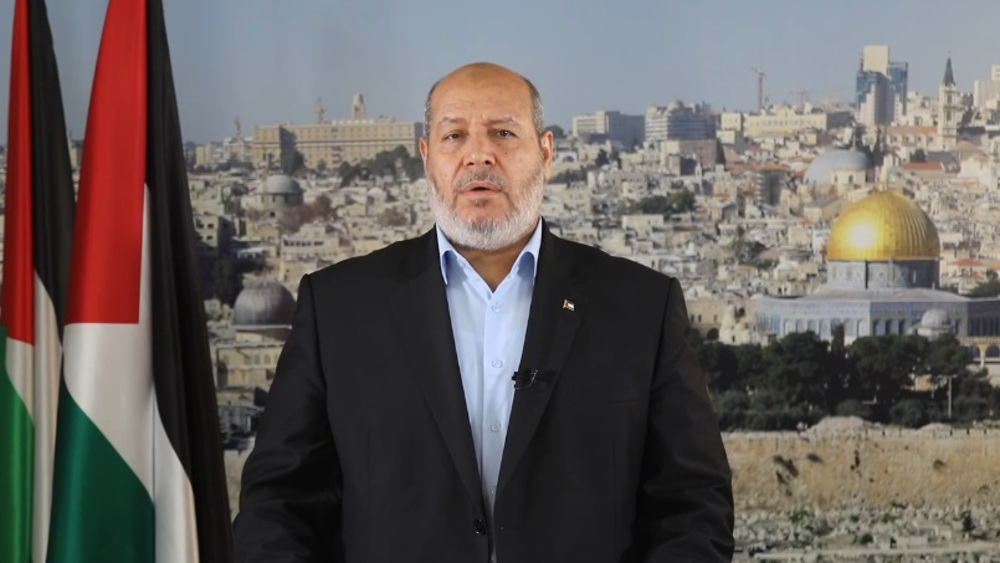Qatar crisis upshot of Riyadh summit: Iran
Iran says the crisis involving Qatar and several other Arab countries is a consequence of a Saudi Arabian-organized summit in Riyadh last month.
At a press conference on Monday, Iranian Foreign Ministry Spokesman Bahram Qassemi referred to the summit held in the Saudi capital with the presence of US President Donald Trump and said that the event, having been “untimely and with the wrong composition of guests,” was bound to cause unfortunate consequences.
The so-called Arab Islamic American Summit was held on May 21, when Trump gave a controversial speech, calling on the participating countries — some of which, including Saudi Arabia itself, are themselves known as sponsors of violent terrorist groups — to work against terror and also isolate Iran, which was not present in the summit.
Trump also signed an arms deal with Saudi Arabia worth 110 billion dollars during his stay in the Saudi capital.
Later, Saudi Arabia, the United Arab Emirates (UAE), Bahrain, the Maldives, and Egypt broke off ties to Qatar, accusing Doha of supporting terrorism, an accusation that the Qatari government denies.
Trump later suggested that the development was a result of his first state visit to Saudi Arabia.
Read more:
The regional countries opposed to Doha also blocked their transit routes to Qatar and ordered most of Qatari nationals to leave their respective soils.
Qassemi, once again, called for dialog among the feuding sides and expressed hope that the Arab countries would be able to resolve the tensions and work toward ever-increasing calm and stability in the region through negotiation.
Advice for Tillerson
Qassemi also advised US Secretary of State Rex Tillerson to engage in the study of both history and geography so he would not err again by referring to the Persian Gulf as “the Gulf,” as is wont by the American diplomat.
Documents and maps recorded over the past centuries all refer to the region as the Persian Gulf, Qassemi said, adding that the US State Department, Congress, and European national archives all host such historical material.
“It would not be a tough task [for Tillerson] to review the documents so he would acquaint himself further with historical facts,” the official said.
“I do not think that one can buy history, geography, culture, and civilization with dollars, oil, and [by engaging in] business. Nor can one turn a philistine nation into a cultured one or vice versa by means of [engaging in] trade,” Qassemi said.
He was apparently referring to Washington’s overtures toward Riyadh since US President Donald Trump’s inauguration, which has seen it clinching arms and educational agreements with Saudi Arabia in exchange for hundreds of billions of dollars.
‘Iran studying SCO accession docs’
Elsewhere in his remarks, Qassemi said Iran was studying the documents that it is required to sign to accede to the Shanghai Cooperation Organization, but said the process would be a long one.
Iran is currently an observer state at the important economic and security alliance. China has backed Iran’s membership in the body, which was formed in 2001 by the leaders of China, Kazakhstan, Kyrgyzstan, Russia, Tajikistan, and Uzbekistan to curb extremism in the region and enhance border security.
Tehran terror attacks
Qassemi also referred to the terrorist attacks in Tehran last Wednesday and described them as “militarily crude and worthless..., done to create alarm and terror and [to enable] political exploitation.”

He said that more than 80 world countries had extended their condolences to the survivors of the attacks, saying, “This shows that there is appropriate sensitivity across the international community vis-à-vis such painful incidents.”
US attacks in Syria
Addressing the issue of the recent US attacks on Syrian and pro-government forces, Qassemi said that, by waging the assaults, Washington was trying to “buy time for terrorists at certain junctures, when they end up in undesirable situations.”
He said US measures in Syria have always been subject to doubts and speculations, “however, if they (the Americans) favor an independent country that fights terrorism, they should reconsider their behavior, abandon such measures, and let the Syrian army and government establish stability and security and defend their own country’s integrity.”
A US-led coalition purportedly fighting Daesh in Syria on Thursday downed a drone operated by pro-government forces close to the Jordanian border.
Kurdistan referendum
Last Wednesday, the Iraqi Kurdistan region said it would hold a referendum on breaking away from Iraq. Addressing the matter, Qassemi said the Islamic Republic backed Iraq’s territorial integrity, national sovereignty, and constitution, and a stable and democratic Iraq, wherein all ethnicities could enjoy peaceful co-existence.
He said broaching the issue of such a referendum at the current point in time was an “injudicious” act.
Jan. 15: ‘Axis of Resistance’ operations against Israeli occupation
VIDEO | US fires: Criticism mounts over govt. failure to respond
VIDEO | Fears, hope in Gaza amid intensified ceasefire efforts
VIDEO | Press TV's news headlines
Hamas: Ceasefire agreement result of steadfastness, resistance in Gaza over 15 months
Hamas thanks Iran, Resistance Front following achievement of ceasefire in Gaza
'Capitulation': Israeli officials and media concede Gaza defeat as truce unfolds
'Gaza has won': Social media users react to ceasefire with mix of relief, joy













 This makes it easy to access the Press TV website
This makes it easy to access the Press TV website